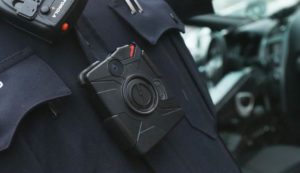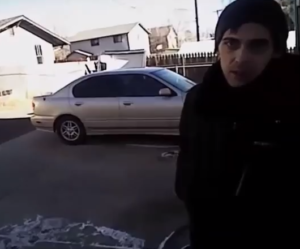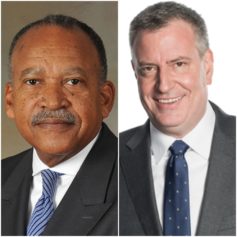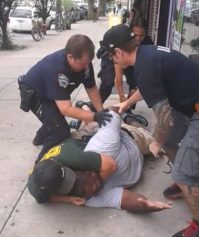
Though they have received considerable hype, police body cameras are not the end-all, be-all solution to improving policing and preventing racial profiling.
A 2012 study by a police department in Rialto, California, helped popularize body cameras as a solution to the attacks by police officers on unarmed Black men.
Researchers concluded that in the Rialto study, officers who were wearing the cameras used force far less often because the number of violent incidents dropped by more than 50 percent.
Those numbers seemed impressive and many people ran with it.
One researcher, however, is encouraging people to continue asking questions and continue digging deeper than just one study in a small department.
“The Rialto study is one study, and it could be a fluke,” Alex Sutherland, of the University of Cambridge who was actually one of the researchers behind the Rialto study, told NPR. “It’s a small department. The police chief was kind of involved in implementation.”
Sutherland is not suggesting that the cameras don’t work, but he merely thinks the public needs to be more inquisitive about the small amount of evidence supporting police body cameras.
Even more important, however, was the simple fact that some citizens and the police forces are usually going to see things differently.
It’s what the Black community learned the hard way after a grand jury failed to indict New York officer Daniel Pantaleo after he put Staten Island father Eric Garner in a fatal chokehold. Despite the entire incident being caught on tape, including Garner telling officers 11 times that he couldn’t breathe, a grand jury decided the officers didn’t use any excessive force against Garner.
Even police dashboard cameras have been at the center of controversy and prove the difference between what an officer sees and what a citizen sees when reviewing the footage.
Last fall, a South Carolina man was pulled over by police and asked to get his license after he stepped out of the car. When the man reached back into his car to get his license, the officer ordered him to get out of the car and began firing within a matter of seconds.
For the Black community, it was another clear sign that officers are too willing to fire away at unarmed Black men for no reason.
For officers, the man’s sudden movement seemed unnatural and warranted defensive action by the officer.
“I felt my stomach tense because I’ve seen that — and this has nothing to do with whether the incident was justified or not — but, I’ve seen that kind of quick movement before, where people have emerged with a weapon,” San Francisco police Sgt. Adam Plantinga said of the controversial footage to NPR.
Plantinga explained that officers look out for certain types of behavior that could indicate a suspect is prone to becoming violent but that’s not something the average person is going to consider when watching the footage from body cameras or police dashboards.
“They may wipe their hands on their pants, they may lower their head [or] lower their jaw to protect their neckline, sort of unconscious human behavior that means that there could be violence at any time,” he explained.
In the midst of all this, Plantinga said he is actually in support of police body cameras but thinks people will need to keep in mind that even body cameras won’t always provide the entire story.
There are also concerns about how police body cameras could impact officer morale and recruitment.
Eugene O’Donnell, a former police officer, said a department with police body cameras is not the type of environment he would recommend anyone enter.
O’Donnell told NPR that “the whole atmosphere tells you right at the outset that if there’s a bad ending, you’re gonna be called a murderer, you’re gonna get death threats in your home.”
It’s possible that other potential recruits could feel the same way.
Perhaps a greater concern, however, is how to deal with issues of privacy.
Without a doubt, every time someone is seemingly, unjustly killed by an officer, the public is going to want access to the footage.
Police Chief Kevin Treadway says that’s just not right.

While the clip was edited to stop just before the weapon is shown on video, Treadway still feels like releasing that footage was a violation of the officer’s family’s privacy.
“I guess if you’re asking me the question: Does the public right to know, in this particular case, outweigh the pretty significant trauma that showing this on the nightly news has for the members of the family? I have to say no,” he told NPR.
These are all concerns that prove two things: Body cameras alone won’t be enough to bring significant change to policing, and the community will need to understand that body cameras will come with their own set of rules and regulations.
Not every video of someone’s death will be or should be released to the public, and not every video will capture the full spectrum of the moments leading up to someone’s death.
At the same time, officers cannot point to something as simple as feeling uncomfortable in an environment where they are being recorded as a way to halt the implementation of new technology that could, at least in part, help lead to more police accountability.

